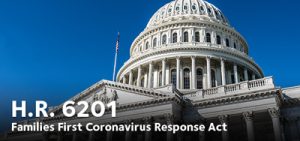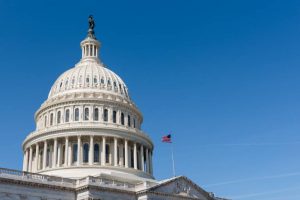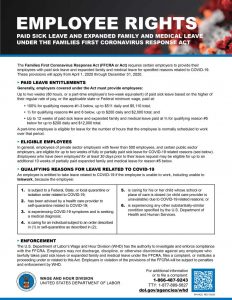By Christopher J. Graham and Joseph P. Kelly

The US Department of Labor just published FAQs answering many questions about the details of the new Families First Coronavirus Response Act and expanded Family Medical Leave Act.
As a general matter, unless you have Covid-19-related sick or quarantined employees or employees caring for Covid-19-related sick or quarantined family members, the main way it would affect you is if you have employees who are home and can’t telework because of a Covid-19 related school closure or closure of a child care (paid) provider.
There’s now greater clarity about many issues, such as permissible documentation requirements; intermittent leave, whether from teleworking or otherwise; and calculating pay for part and full-time workers.
Regarding whether an employee is entitled to paid leave if they are unable to work because of a State stay-at-home order, here’s what the DOL says:
If my employer closes my worksite on or after April 1, 2020 (the effective date of the FFCRA), but tells me that it will reopen at some time in the future, can I receive paid sick leave or expanded family and medical leave?
No. If, prior to the FFCRA’s effective date, your employer sent you home and stops paying you because it does not have work for you to do, you will not get paid sick leave or expanded family and medical leave but you may be eligible for unemployment insurance benefits. This is true whether your employer closes your worksite for lack of business or because it is required to close pursuant to a Federal, State, or local directive. You should contact your State workforce agency or State unemployment insurance office for specific questions about your eligibility. For additional information, please refer to https://www.careeronestop.org/LocalHelp/service-locator.aspx. It should be noted, however, that if your employer is paying you pursuant to a paid leave policy or State or local requirements, you are not eligible for unemployment insurance.
The same would hold true if the business was closed before April 1 and remained so afterwards.
In a related vein, the DOL says:
If my employer reduces my scheduled work hours, can I use paid sick leave or expanded family and medical leave for the hours that I am no longer scheduled to work?
No. If your employer reduces your work hours because it does not have work for you to perform, you may not use paid sick leave or expanded family and medical leave for the hours that you are no longer scheduled to work. This is because you are not prevented from working those hours due to a COVID-19 qualifying reason, even if your reduction in hours was somehow related to COVID-19.
You may, however, take paid sick leave or expanded family and medical leave if a COVID-19 qualifying reason prevents you from working your full schedule. If you do, the amount of leave to which you are entitled is computed based on your work schedule before it was reduced[.]
Remember though, that if you are required to provide paid family leave, there is a tax credit available to reimburse you for the payments – a credit against the employer share of certain payroll taxes. See IRS site for details.



